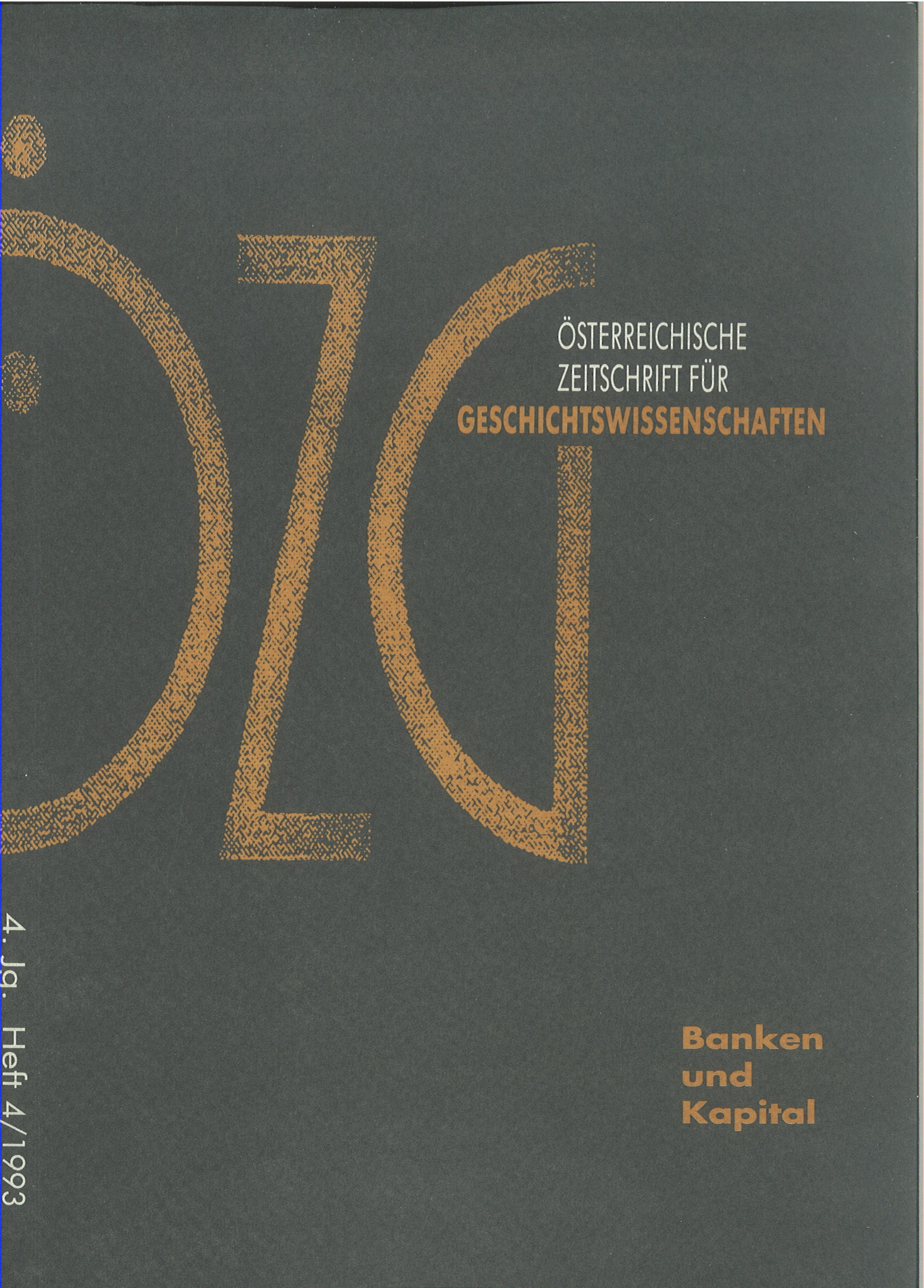The banking system and finance procurement in Czechoslovakia 1918-1931
DOI:
https://doi.org/10.25365/oezg-1993-4-4-3Abstract
The newly created Czechoslovak Republic inherited the essential characteristics of the former Austro-Hungarian banking system. The process of nostrification of industrial enterprises and branch offices of Viennese banks brought about major changes. This buttressed the position of the Bohemian banks and created an influential group of mixed Czech and German banks. A third group was represented by local German banks. The commercial banks of Czechoslovakia were universal ventures playing the roles of both deposit institutes and founder banks. In the sphere of financial sources, sums deposited at current accouts grew in comparison with pre-war times while an overwhelming majority of credits was constituted by short-term credits. Long-term credits were available only as consortial ventures of several banks. Foundation activities assumed a considerable extent especially between the years 1920 and 1924.


